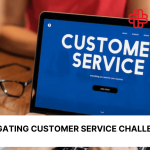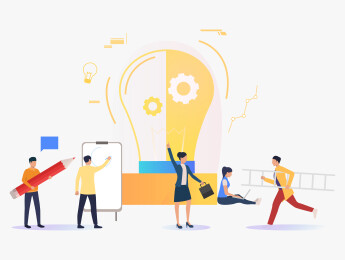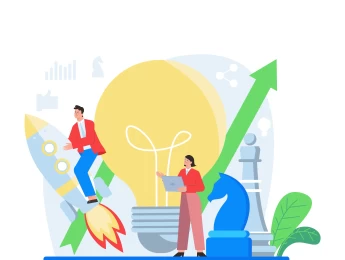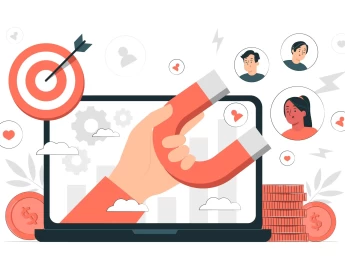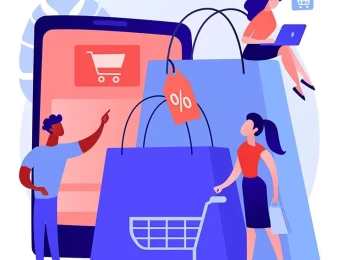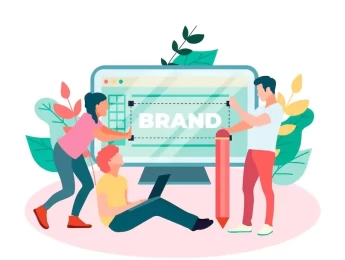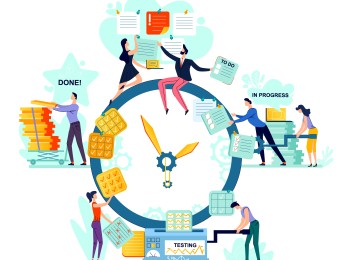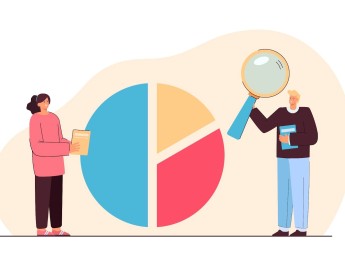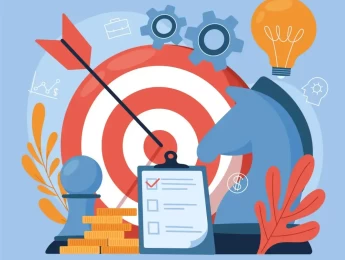Customer service is essential for businesses to secure brand loyalty and increase conversion. You’ll likely lose customers without good customer service, and your reputation will precede you. Most customers who have had a bad experience are likely to share their experience with other people. This means a bad customer experience with a single customer could damage your business and prevent sales from many more people in the future.
Good customer service doesn’t just happen. You must carefully consider your strategy and map out the customer journey to ensure your customers get the best experience. Customer service isn’t just about talking to your front-line staff. It’s also about making the purchasing process easily accessible and dealing with issues and complaints promptly and to the customer’s satisfaction. Even if a customer has a bad experience, the resolution could restore their faith in your brand.
To achieve the best customer-focused strategy, you need to gain buy-in from all your staff, from the frontline to higher management. You’ll also need to understand your customers’ needs and look to the future. Society is constantly changing and becoming increasingly demanding, and it’s important that companies understand what is expected and work on continuous improvement.
Upon completion of this course, participants will be able to:
- Create a customer-focused culture throughout the business.
- Gain buy-in from stakeholders and partners regarding your customer service offering.
- Understand how IT and automation can help you satisfy your customers.
- Make changes for future customer service needs.
- Create effective customer journey maps to aid accessibility.
- Handle complaints and negative feedback gracefully to restore your customers’ faith in the business.
- Manage your frontline employees to portray the best image of your company.
- Improve communication skills across the business.
- Utilise multiple communication methods to reach a larger customer base.
- Manage customer focus as part of your scorecards using SMART targets.
- Recognise the significance of every customer interaction.
This course is designed for anyone involved in designing the customer journey within the business or who has a frontline role and is interested in understanding the impacts of their communication style. It would be most beneficial for:
- Business Owners
- Directors
- Customer Service Managers
- Operations Managers
- Team Leaders
- Supervisors
- Project Managers
- IT Professionals
- Front Line Employees
- Communications Managers
This course uses a variety of adult learning styles to aid full comprehension and understanding. Participants will experience videos and presentations displaying positive and negative customer experiences. Group work will be conducted to piece together the best customer journey based on previous negative feedback to aim for continuous improvement.
Role-playing activities will help participants deal with negative feedback, and mock investigations will be conducted to determine the most appropriate and strategic ways forward.
Day 5 of each course is reserved for a Q&A session, which may occur off-site. For 10-day courses, this also applies to day 10
Section 1: Why Customer Service Matters
- How customer service affects the whole business.
- What happens after a negative experience?
- How rectifying errors can change customer opinion.
- The ability to create brand loyalty through service.
Section 2: Delivering World-Class Customer Service
- The benefits of supplying good customer service.
- Customer segmentation.
- Understanding what your customer is asking for.
- Putting yourself in the customer’s shoes.
- Creating the WOW factor and generating great reviews.
- Developing a good first impression.
Section 3: Developing Your Communication Styles
- The power of body language and non-verbal communication.
- Learning styles and personality types.
- The 4 customer types.
- Active listening and acting on feedback.
- Your customer’s learning style.
- How to achieve the best outcome.
- Telephone vs written communication.
Section 4: How IT Can Help Your Customer Service Offering
- Customer journey mapping.
- How can you improve your experience before your customer needs to contact you?
- Customer interaction before contact.
- Automating your customer service platforms.
- Utilising different types of contact methods.
- Reviewing your accessibility requirements.
Section 5: Benchmarking Against Competitors to Achieve A Higher Level Service.
- Reviewing competitors and what they have to offer.
- Mystery shopping and how to value service.
- Inner and outer customer expectations.
- Your customer care guidelines.
- The policies for written communication.
- Using social media to display your excellent service.
Section 6: Customer Feedback & Constructive Criticism
- Encouraging customer feedback and constructive criticism.
- Ways to reach out to your customers.
- How do you intend to feedback on your changes?
- How to work with difficult or demanding customers.
- The line between requesting and demanding.
- How to be firm with customers when they go too far.
- Recognising when you could have done better and going the extra mile.
Section 7: Continuous Improvement & Future Focus
- Auditing your changes.
- Revisiting project plans to aim for continuous improvement.
- Meeting the demands of customers in the future.
- Strategic customer-focused models to futureproof your business.
- Setting SMART targets.
- Gaining buy-in from your frontline employees.
- Training and development for a customer-focused future.
Upon successful completion of this training course, delegates will be awarded a Holistique Training Certificate of Completion. For those who attend and complete the online training course, a Holistique Training e-Certificate will be provided.
Holistique Training Certificates are accredited by the British Assessment Council (BAC) and The CPD Certification Service (CPD), and are certified under ISO 9001, ISO 21001, and ISO 29993 standards.
CPD credits for this course are granted by our Certificates and will be reflected on the Holistique Training Certificate of Completion. In accordance with the standards of The CPD Certification Service, one CPD credit is awarded per hour of course attendance. A maximum of 50 CPD credits can be claimed for any single course we currently offer.
- Course Code PM2-109
- Course Format Classroom, Online,
- Duration 5 days


